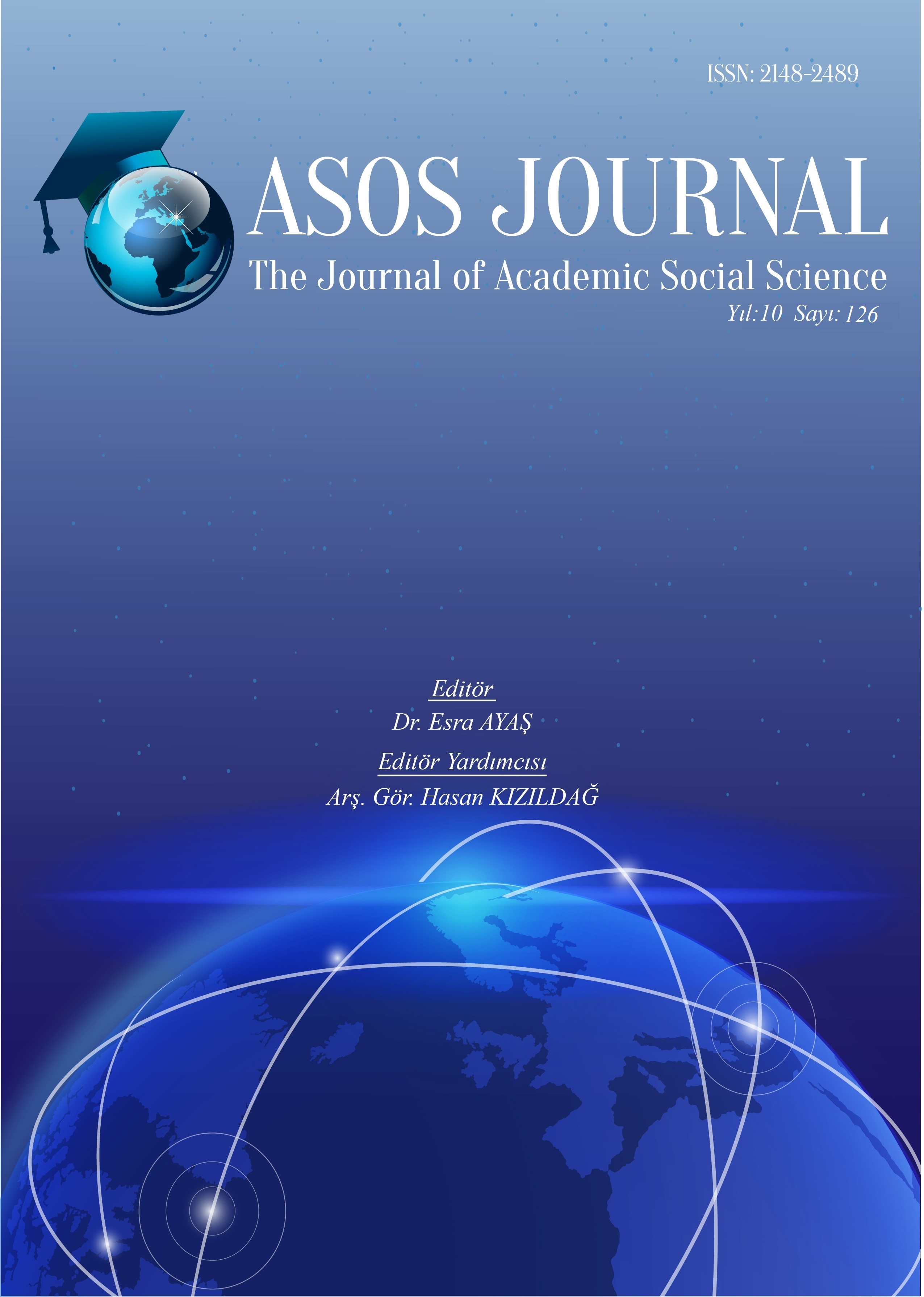Author :
Abstract
1971 yılında Cumhurbaşkanına verilen muhtıra niteliği taşıyan mektubun ardından Türkiye’de sık sık hükümet değişiklikleri yaşanmış, Kıbrıs Barış Harekatı’nın gerçekleştirilmesi sonucu ülkeye uygulanan ambargo, petrol krizi ve döviz kıtlığı ülkeyi çok zor durumlara sokmuştur. 1979 yılı sonlarına doğru iktidara gelen Süleyman Demirel, ekonomi alanında Turgut Özal’ı yetkilendirmiştir. Göreve gelen Turgut Özal, IMF ve Dünya Bankası gibi kurum ve kuruluşların tavsiyelerine de yer verip hazırladığı 24 Ocak ekonomik istikrar paketini uygulamaya koymuştur. Bu kararlar ile birlikte ekonomide içe dönük, ithal ikameci anlayış terkedilerek dışa dönük, ihracata dayalı bir model hedeflenmiştir. Ancak ekonomik istikrar paketinin içerisinde olan bazı kararlar uygulanamamış ve krize neden olmuştur. Ardından gelinen süreçte 12 Eylül 1980 günü Türk Silahlı Kuvvetleri yönetime el koymuş ve devamında da 24 Ocak ekonomik istikrar paketinin içeriğindeki uygulanamayan kararlar uygulanmaya başlamıştır. Bu çerçevede öncelikle 12 Eylül 1980 öncesi genel durum araştırılarak mevcut sorunlar üzerinde durulmuş, ardından 24 Ocak kararlarının içeriğinden bahsedilmiş ve uygulanamayan kararların ne gibi sorunlara yol açtığından bağlantı kurularak 24 Ocak kararlarının 12 Eylül 1980’de yapılan darbedeki rolü değerlendirilmiştir.
Keywords
Abstract
After the memorandum given to the President in 1971, there were frequent changes of government in Turkey, the embargo imposed on the country as a result of the Cyprus Peace Operation, the oil crisis and the currency shortage put the country in very difficult situations. Suleyman Demirel, who came to power at the end of 1979, authorized Turgut Özal in the field of economics. Turgut Özal, who took office, implemented the January 24 economic stability package, which he also included and prepared recommendations from institutions and organizations such as the IMF and the World Bank. Along with these decisions, an inward-looking, import-substitutive understanding of the economy was abandoned and an outward-looking, export-based model was aimed at. However, some of the decisions included in the economic stability package were not implemented and caused a crisis. January September 12, 1980, the Turkish Armed Forces seized the administration, and then the unenforceable decisions contained in the January 24 economic stability package began to be implemented. January September January September 12, 1980, the general situation before September 12, 1980 was investigated and the current problems were focused on, then the content of the January 24 decisions was mentioned and the role of the January 24 decisions in the coup on September 12, 1980 was evaluated by establishing the connection with what problems the unenforceable decisions caused.
Keywords
- Altıok, P. (1991). 24 Ocak kararları, dışa açılma ve uygulanan iktisat ve maliye politikaları. Yayımlanmamış Yüksek Lisans Tezi, İstanbul Üniversitesi İktisat Fakültesi.
- Atagenç, İ. Ö. (2017). İzmir İktisat Kongresi ve 24 Ocak kararları sonrası Türkiye’nin liberal tecrübesinin karşılaştırmalı analizi. Gazi Üniversitesi İktisadi ve İdari Bilimler Fakültesi Dergisi Gazi Akademi Genç Sosyal Bilimciler Sempozyumu 2017 Özel Sayısı, 69-87.
- Balcı, A. (2017). Türkiye dış politikası ilkeler, aktörler ve uygulamalar. Alfa Yayınları.
- Coşkun, Y. (2017). I. Milliyetçi cephe hükümetinin ilk üç ayında Türk siyasal hayatı ve mecliste iktidar-muhalefet ilişkisi. Balıkesir Üniversitesi Sosyal Bilimler Enstitüsü Dergisi, 20(38):271-297.
- Dokuyan, S. ve Narbahçe, R. (2018). Bülent Ulusu hükümeti döneminde Türk dış politikası (1980-1983). Düzce Üniversitesi İnsan ve Toplum Bilimleri Araştırmaları Dergisi, 7(4):2899-2925.
- Erkan, B. (2005). Türkiye’de 1980 sonrası Merkez Bankası politikaları. Phd Program.
- Gökbunar, R. İzmirli, R. ve Özer, B. (2014). Dönüşümcü bir lider olarak Turgut Özal. Dumlupınar Üniversitesi Sosyal Bilimler Dergisi, 42:245-256.
- Gönlübol, M. ve Kürkçüoğlu Ö. (2014). Olaylarla Türk dış politikası (1919-1995). Siyasal Kitapevi.
- Haydaroğlu, C. ve Tatlısu, S. (2016). Turgut Özal dönemi yeni sağ devlet ve ekonomik liberalizm: Devlet ve piyasa ilişkisinin politik ekonomisi. Bilecik Şeyh Edebali Üniversitesi Sosyal Bilimler Dergisi, 1(1):27-41.
- İntaş, Ö. (2019). 24 Ocak 1980 ekonomik kararların Türkiye ekonomisine etkileri, yansıması ve sonuçları. Yayımlanmamış Yüksek Lisans Tezi, Dicle Üniversitesi Sosyal Bilimler Enstitüsü.
- Kalya Altekin, V. (2019). 24 Ocak kararları: Hürriyet ve Cumhuriyet gazetelerinde yayınlanan köşe yazılarının içerik ve söylem analizi. Yayımlanmamış Yüksek Lisans Tezi, Mardin Artuklu Üniversitesi Sosyal Bilimler Enstitüsü.
- Köse, S. (2002). 24 Ocak 1980 ve 5 Nisan 1994 istikrar programlarının karşılaştırması. Devlet Planlama Teşkilatı Planlama Dergisi (Özel Sayı), 119-128.
- Memiş, D. (2019). 24 Ocak 1980 kararlarının çalışma yaşamına etkileri: 1980’den 1989 bahar eylemlerine. Yayımlanmamış Yüksek Lisans Tezi, Kocaeli Üniversitesi Sosyal Bilimler Enstitüsü
- Mumyakmaz, A. (2019). 24 Ocak ekonomik istikrar kararları ile 12 Eylül askeri darbesinin neoliberalizm ittifakı ve siyasal İslam'ın süreçteki rolü. Third Sector Social Economic Review, 54(4):1899-1915.
- Oran, B. (2001). Türk dış politikası: Kurtuluş Savaşından bugüne olgular, belgeler, yorumlar Cilt 1 1919-1980. İletişim Yayıncılık.
- Öztürk, Ş., Nas, F., ve İçöz, E. (2008). 24 Ocak kararları, neo-liberal politikalar ve Türkiye tarımı. Pamukkale Üniversitesi Sosyal Bilimler Enstitüsü Dergisi, (2),15-32:15-32.
- Poyraz, G. (2020). 24 Ocak 1980 kararları ve bu kararlar üzerine yürütülen tartışmaların bir analizi. Yayımlanmamış Yüksek Lisans Tezi, 19 Mayıs Üniversitesi Lisansüstü Eğitim
- Şahin, H. (2013). Türkiye ekonomisi, 13. baskı. Ezgi Kitabevi.
- Tatlıdil, D. (2013). Askeri hükümetler döneminde Türk dış politikası (1960-1983). Yayımlanmamış Yüksek Lisans Tezi, Karadeniz Teknik Üniversitesi Sosyal Bilimler
- Tatlısu, S. (2017). Türkiye’de maliye politikasının dönemsel etkinliği: 24 Ocak kararları çerçevesinde Turgut Özal döneminin değerlendirilmesi. Yayımlanmamış Yüksek Lisans Tezi, Bilecik Şeyh Edebali Üniversitesi Sosyal Bilimler Enstitüsü.
- Yıldırım, N. (2012). 24 Ocak 1980 kararları ve sosyal yaşama etkisi. Yayımlanmamış Yüksek Lisans Tezi, Kilis 7 Aralık Üniversitesi Sosyal Bilimler Enstitüsü.
- URL-1, 1971, http://gazetearsivi.milliyet.com.tr/arsiv/1971/03/13(11.04.2021).
- URL-2, Elektrik Mühendisleri Odası, (2011). 24 Ocak kararları ve 12 Eylül aynı torbadan çıkmıştır.https://www.emo.org.tr/genel/bizden_detay.php?kod=81531, (10.04.2021).
- URL-3, Birand, M. A. (1998). 12 Eylül belgeseli, 32. Gün arşivi. www.youtube.com (12.09. 2020).
- URL-4, T.C. Başbakanlık Devlet Planlama Teşkilatı. Birinci Beş Yıllık Kalkınma Planı, 1963 http://www.dpt.gov.tr/
- URL-5, T.C. Başbakanlık Devlet Planlama Teşkilatı. İkinci Beş Yıllık Kalkınma Planı (1968- 1972). http://www.dpt.gov.tr/
- URL-6, T.C. Başbakanlık Devlet Planlama Teşkilatı. (1973). Üçüncü Beş Yıllık Kalkınma Planı 1973-1977. http://www.dpt.gov.tr/
- URL-7, T.C. Başbakanlık Devlet Planlama Teşkilatı. (1979). Dördüncü Beş Yıllık Kalkınma Planı, 1979. http://www.dpt.gov.tr/
- Hürriyet, 26.07.1975.
- Hürriyet, 25.09.1981.
- Resmi Gazete, 25 Ocak 1980. 16880 sayılı mükerrer.
